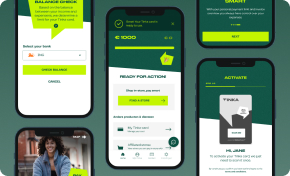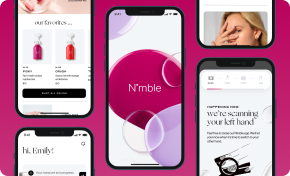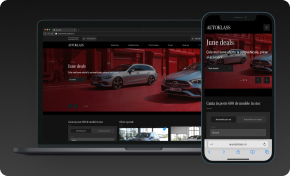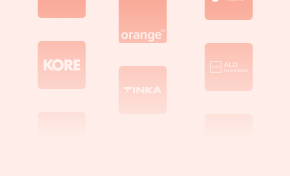ChatGPT web app integrations can enhance your processes and boost your business outcomes. Today, ChatGPT is seen as a game-changer due to its advanced capabilities. It has the potential to revolutionize the way users interact with web applications. According to Statista, by March 2023, more than 900 companies mentioned that they had started using ChatGPT. By integrating it into their workflows, 24% of the companies declared they had saved between 50K and 70K US dollars, while 11% stated having saved more than 100K.
Without a doubt, ChatGPT is an artificial intelligence language model created by OpenAI. It is designed to produce human-like text in a conversational tone. One of ChatGPT’s notable features is its capability to comprehend the context and generate coherent responses during a conversation. It analyzes the entire conversation’s context rather than just individual sentences. This characteristic makes it ideal for tasks such as chatbots, virtual assistants, and other natural language understanding applications.
Begin Your Digital Transformation Journey
Customized Strategies to Lead Your Business into the Digital Age
Explore Digital TransformationLet’s now dive into different ways that businesses can use the power of ChatGPT web app integrations and benefit from its game-changing features.
1. Customer Support Integration
Description: Providing efficient and timely customer support is crucial for businesses. ChatGPT offers automated responses that ensure round-the-clock support and efficient handling of frequently asked questions (FAQs). Thus, the outcome is a seamless customer support experience that surpasses traditional expectations.
Where it is used: For instance, you can integrate ChatGPT via OpenAI’s API into your live chat system to analyze user queries in real time and generate context-aware responses. Moreover, you can seamlessly integrate it with your existing customer support infrastructure. This guarantees an automated and intelligent 24/7 support experience.
2. E-Commerce Personal Shopper
Description: Imagine a virtual shopping assistant guiding users through their shopping journey. ChatGPT can transform this idea into reality. It can offer a guided shopping experience, provide product recommendations based on user queries, and even assist in checkout. As a result, it transforms e-commerce into an interactive and personalized shopping adventure.
Web Development Services Tailored to Your Business Needs
Customized Web Solutions to Elevate Your Online Presence
Discover Web DevelopmentWhere it is used: You can integrate ChatGPT into your e-commerce application using product databases and user profiles. When a user interacts with the chatbot, it dynamically analyzes their preferences, browsing history, and real-time queries to provide personalized product recommendations. This leads to a more engaging shopping experience and increases the likelihood of conversion.
3. Content Management Systems
Description: Content is considered one of the most important factors in attracting new clients and retaining existing ones. ChatGPT web app integrations ensure your content management process is always at the top. It allows you to automate content suggestions, enjoy chat features that are easy to update, and seamlessly integrate it with popular CMS platforms. Hence, you will have an efficient and creative content creation and management process.
Where it is used: You can integrate ChatGPT as a content suggestion engine within your content management system (CMS). Developers can use OpenAI’s SDK to enable content creators to interact with the chatbot, generate creative ideas, refine article structures, and receive real-time feedback on writing styles.
Boost Engagement Through Tailored UX/UI Design
Designing Impactful Digital Experiences That Foster Connection and Increase Sales
Discover UI/UX Design4. CRM Systems Integration
Description: Efficient customer relationship management is the cornerstone of business success. ChatGPT web app integrations enhance customer profiling, respond immediately to CRM entries, and streamline sales processes. As a result, you will have meaningful connections and the ability to turn customer data into actionable insights.
Where it is used: Enhance your CRM platform by integrating ChatGPT with OpenAI APIs. This integration allows the chatbot to fetch and analyze customer data, providing immediate responses to inquiries. The chatbot can assist sales representatives in gathering information, processing leads, responding to it more efficiently, and streamlining data entry processes.
5. Social Media Chatbots
Description: Engaging with customers on social media is like having a conversation. With ChatGPT, you can quickly respond to customer feedback and communicate with them on various social media platforms. Hence, it helps boost engagement and increases customer chances to return.
Where it is used: You can easily integrate ChatGPT into your social media platforms by using API endpoints. The chatbot monitors comments and messages, providing instantaneous responses to user inquiries, supplying relevant information, and redirecting complex issues to human agents. This ensures a responsive and active social media presence and enhances the overall user experience.
6. Feedback Collection
Description: Collecting feedback is an essential aspect of understanding your audience, and ChatGPT web app integrations can make this process very easy. By integrating ChatGPT, you can create surveys and collect user feedback in real time. This way, you gain valuable insights that help you understand your users on a deeper level.
Where it is used: You can seamlessly integrate ChatGPT into your feedback collection system. When users submit feedback or participate in surveys, ChatGPT processes their responses, identifies patterns, and generates actionable insights. This integration enhances the depth and efficiency of feedback analysis, leading to actionable improvements.
7. Event and Calendar Integration
Description: Efficient scheduling is an indispensable resource for organized operations in a fast-paced world. ChatGPT allows you to schedule appointments easily, set reminders, and facilitate event registrations. The AI-powered chatbot makes time management a breeze, ensuring that your calendar aligns with your business goals.
Where it is used: You can integrate the ChatGPT web app into your scheduling and calendar application. This allows your users to interact seamlessly with the chatbot, schedule appointments, set reminders, and facilitate event registrations.
8. E-Learning Platforms
Description: In the field of education, ChatGPT has become a personalized learning assistant. It handles queries, provides feedback on courses and content, and ensures that the learning experience is not just informative but also tailored to individual needs.
Where it is used: Integrate ChatGPT into your e-learning platform using SDKs. As students engage with course content, they can interact with the chatbot for instant clarification, personalized study tips, and additional resources. It also proposes some learning courses depending on your or your colleagues’ browsing history. Therefore, the chatbot becomes an intelligent learning companion, enhancing the overall educational experience.
9. Onboarding Tutorials
Description: Integrating ChatGPT into your onboarding process transforms the experience for new hires. It provides guided tours, intuitive introductions, and instant answers to common queries during onboarding. Therefore, it helps with a smoother and faster integration of them into the company’s culture and environment. Using ChatGPT web app integrations, you can create a personalized and seamless experience that supports a positive user experience.
Where it is used: One way to integrate ChatGPT into your onboarding process is by creating interactive tutorials that guide new employees through your company’s structure. As they navigate through applications and websites, the chatbot can guide them and offer assistance tailored to the specific onboarding needs of each employee. As a result, the new joiners will experience a smoother transition into the company and feel more confident in their role.
10. Human Resource (HR) Platforms
Description: Human resources is an essential department of any organization, responsible for employee processes like recruiting, training, performance management, and retention. Managing these tasks can be time-consuming and, at the same time, challenging. ChatGPT is an AI-powered chatbot that supports you in managing employee queries, streamlining onboarding processes, and assisting in HR operations such as leave and pay. This integration transforms HR operations into more efficient, responsive, and user-friendly processes, enabling your organization to attract and retain top talent while fostering a culture of continuous improvement and growth.
Where it is used: By integrating ChatGPT into your HR platform, you can automate and enhance HR processes, freeing time for your HR team to focus on strategic initiatives. The chatbot can handle employee inquiries about policies, provide information on benefits, and assist in onboarding new employees. It communicates seamlessly with HR databases through API connections, streamlining HR processes related to hiring, leave, pay, bonus calculation, development plans, and other HR-related inquiries. This integration transforms HR operations, making them more efficient, responsive, and user-friendly.
Custom Software Perfectly Aligned with Your Strategic Objectives
Software Solutions that Fit and Enhance Your Business Strategy
Explore Custom SoftwareHow to Integrate ChatGPT?
Integrating ChatGPT into your web applications can be a complex process. It is essential to adopt a strategic approach that considers various factors. The first step is to choose the right platform or application that aligns with your business goals and is compatible with ChatGPT. For this, you need to have a deeper understanding of your current systems and their limitations in terms of integration.
The second step is to leverage the APIs and SDKs provided by OpenAI. These tools serve as a bridge between your existing systems and the capabilities of ChatGPT. By integrating these tools, you can access ChatGPT’s natural language processing capabilities, which can help you automate various tasks, improve customer service, and enhance user experience.
However, navigating the complexities of integration can be challenging, so collaborating with seasoned software consultants such as HyperSense is essential. If you want a smooth and efficient integration process, contact us. We will help you identify potential challenges and risks, develop a comprehensive integration strategy, and train your team to use ChatGPT effectively.
Key Takeaways: Unlocking Business Potential with ChatGPT Web App Integrations
Wrapping it up, ChatGPT web app integrations can transform your business processes, enhance user experience, and streamline operations. With dynamic capabilities across customer support, content generation, lead qualification, and beyond, it has the potential to revolutionize how businesses interact with their audience. AI in web app integrations is the future, and ChatGPT is a testament to its possibilities. By incorporating these integrations, businesses can pave the way for a more efficient, interactive, and customer-focused tomorrow.
So, if you are considering staying ahead of your competition, contact us, and let’s discuss how we can assist you in overcoming your business goals.










